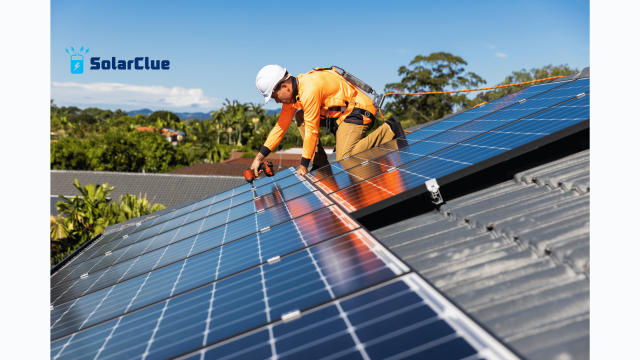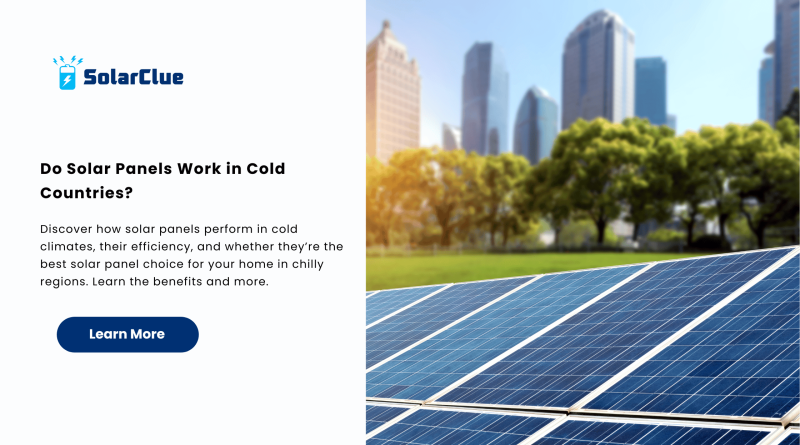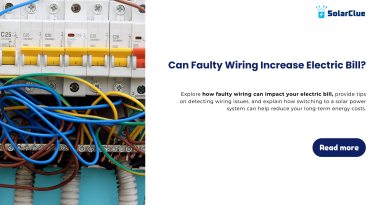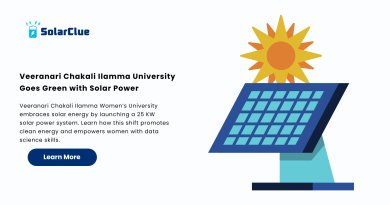Do Solar Panels Work in Cold Countries?
As renewable energy gains traction across the globe, many homeowners in colder regions often ask the same question: Do solar panels work in cold countries? The short answer is—yes, they do. In fact, solar panels can be highly efficient in cold climates, often outperforming their output in hot regions. Let’s break down the science, bust myths, and explore whether switching to Solar Energy makes sense in colder environments.
Table of Contents
- 1 How Solar Panels Function in Cold Weather
- 2 The Science Behind Solar Panel Efficiency in the Cold
- 3 Do Snow and Ice Impact Solar Power?
- 4 Countries Where Solar Panels Thrive in the Cold
- 5 The Best Solar Panel for Home in Cold Regions
- 6 Benefits of Solar Panels in Cold Countries
- 7 Solar Power System: Is It Worth It in Winter?
- 8 Addressing Common Myths About Solar Panels and Cold Weather
- 9 Maintenance Tips for Solar Panels in Snowy Areas
- 10 How to Maximize Solar Panel Efficiency in Cold Climates
- 11 Cost Considerations and ROI in Cold Countries
- 12 Government Incentives and Support
- 13 Sustainability Impact of Solar Panels in Cold Regions
- 14 Final Thoughts: Should You Install Solar Panels in Cold Countries?
- 15 FAQs
How Solar Panels Function in Cold Weather
Contrary to popular belief, solar panels do not rely on heat; they rely on sunlight. Photovoltaic (PV) panels convert sunlight into electricity, not warmth. In fact, excessive heat can reduce solar panel efficiency, which means that cold, sunny days can be optimal for performance.
The Science Behind Solar Panel Efficiency in the Cold
Temperature affects how electrical components function. Cold weather helps reduce resistance in electrical circuits, which can boost the performance of solar panels. This means that solar energy systems may produce even more electricity per hour on a sunny winter day compared to a sweltering summer day.
Do Snow and Ice Impact Solar Power?
Snow can temporarily reduce the effectiveness of solar panels by blocking sunlight. However, panels are typically installed at an angle, allowing snow to slide off. Furthermore, the dark surface of solar panels absorbs heat from sunlight, helping snow melt faster. Once the snow clears, solar panel efficiency returns to normal.
Countries Where Solar Panels Thrive in the Cold
Many countries with colder climates have embraced solar power:
- Germany: Despite long winters, it’s a global leader in solar energy adoption.
- Canada: With ample sunlight in many provinces, solar panels for homes are becoming increasingly popular.
- Norway and Sweden: Making steady investments in solar power systems.
These examples prove that you don’t need constant heat for effective solar panel use.
The Best Solar Panel for Home in Cold Regions
Not all panels are created equal. If you live in a cold area, look for panels with high performance ratings in low-light conditions. Monocrystalline panels are often the best solar panel type for this purpose, offering superior Solar Panel Efficiency even in cloudy or snowy weather.
Benefits of Solar Panels in Cold Countries
Let’s explore the solar panel benefits unique to colder regions:
- Higher efficiency in cooler temperatures
- Reduced risk of overheating
- Longer lifespan of components due to less thermal stress
- Potential for net metering savings
These benefits make solar panel for home an intelligent investment, even if you deal with harsh winters.
Solar Power System: Is It Worth It in Winter?

Absolutely. A well-designed solar power system can store excess energy in batteries or return it to the grid. You’re not just relying on real-time sunshine. Plus, government incentives and subsidies can offset installation costs, making solar panels more affordable.
Addressing Common Myths About Solar Panels and Cold Weather
Myth 1: Solar panels stop working in snow
Fact: They may be temporarily obstructed, but they continue working as soon as snow clears.
Myth 2: Cold climates don’t get enough sunlight
Fact: Many cold regions still receive plenty of sunlight throughout the year.
Myth 3: Solar panels get damaged in frost
Fact: Quality panels are designed to withstand extreme weather, including frost and hail.
Maintenance Tips for Solar Panels in Snowy Areas
To keep your system performing well:
- Clear heavy snow with a soft brush
- Avoid using metal tools to prevent scratching
- Schedule regular inspections
- Install panels at steep angles for better snow runoff
How to Maximize Solar Panel Efficiency in Cold Climates
Here are a few tips:
- Choose monocrystalline panels—the best solar panel for home in terms of cold-weather performance
- Use solar tracking mounts to adjust angles
- Combine with battery storage to retain power for cloudy days
Cost Considerations and ROI in Cold Countries
Yes, the upfront cost can be significant. However, long-term savings on energy bills and government incentives contribute to a quicker ROI. A well-maintained solar power system can pay for itself within 5–8 years.
Government Incentives and Support
Many governments in colder countries offer:
- Tax credits
- Rebates
- Net metering options
These initiatives make solar panel adoption more financially feasible.
Sustainability Impact of Solar Panels in Cold Regions
Using solar energy reduces reliance on fossil fuels, contributing to cleaner air and reduced greenhouse gas emissions. It’s a powerful step toward sustainability—even more critical in areas already facing environmental stress from harsh winters.
Final Thoughts: Should You Install Solar Panels in Cold Countries?
If you’re asking, Do solar panels work in cold countries?, the resounding answer is yes. Not only do they work, but they can be extremely efficient and beneficial in these environments. With advancements in technology, improved solar panel efficiency, and better energy storage systems, solar is no longer just for sunny states. So, whether you’re considering the best solar panel for home or building a larger solar power system, the cold shouldn’t hold you back.
Check out our full range of reliable options at solarclue.com and read more insights on blog.solarclue.com!
FAQs
1. Can solar panels survive snowstorms?
Yes. Most modern panels are designed to withstand extreme weather, including snow and hail.
2. Are solar panels effective during winter months?
Absolutely. Cold temperatures can improve their efficiency, and as long as there’s sunlight, they will produce power.
3. Will I need a special type of panel for a snowy climate?
Monocrystalline panels are usually recommended for their high efficiency and performance in low-light conditions.
4. How do I keep solar panels clear of snow?
Use a roof rake with a soft edge or let natural sun exposure melt the snow.
5. Is solar energy a good investment in cold countries?
Yes. Between government incentives, improved panel technology, and lower maintenance costs, solar is a smart choice—even in cold climates.
Explore the best solar energy solutions for your region today at solarclue.com – your partner in powering up, no matter the weather!




